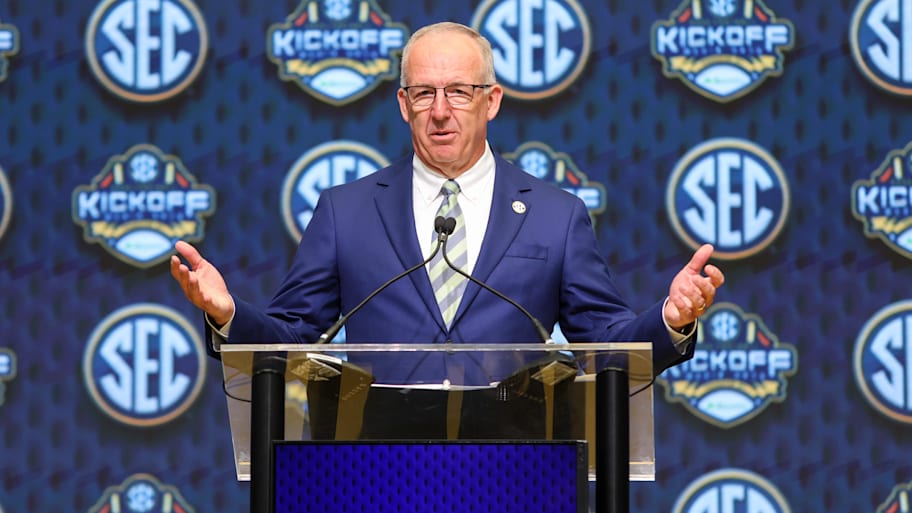House attorneys and power conference commissioners have resolved a dispute with the newly created College Sports Commission over the handling of NIL collectives in the new revenue-sharing era, according to a report from Ross Dellenger of Yahoo.
The dispute centered around how NIL collectives (backed by wealthy boosters) could compensate athletes in the new environment.
A memo sent to schools earlier this month outlined that the College Sports Commission had denied athlete deals from collectives because it was "holding collectives to a higher threshold" when it comes to evaluating the legitimacy of NIL deals, per Dellenger. This original rule, as a result of the House settlement, was originally meant to curtail the millions of dollars being spent by NIL collectives, as well as the power they yielded in a pay-for-play environment.
Now, NIL deals with collectives that have a "valid business purpose" will be re-evaluated. This change means that collectives could provide athletes with deals that would not count against a school's revenue cap that was established for athletes as a result of the House settlement. Any deals with NIL collectives still need to be approved through NIL Go, the clearinghouse established alongside the CSC to evaluate the legitimacy of NIL deals.
This would certainly open the door for schools to navigate (or circumvent) the revenue cap and boost compensation for athletes, which of course, could lead to a continued bumpy future for high school recruiting, the transfer portal and roster tampering.
More College Football on Sports Illustrated
This article was originally published on www.si.com as Power Conferences Resolve Dispute With College Sports Commission Over NIL Collectives.
